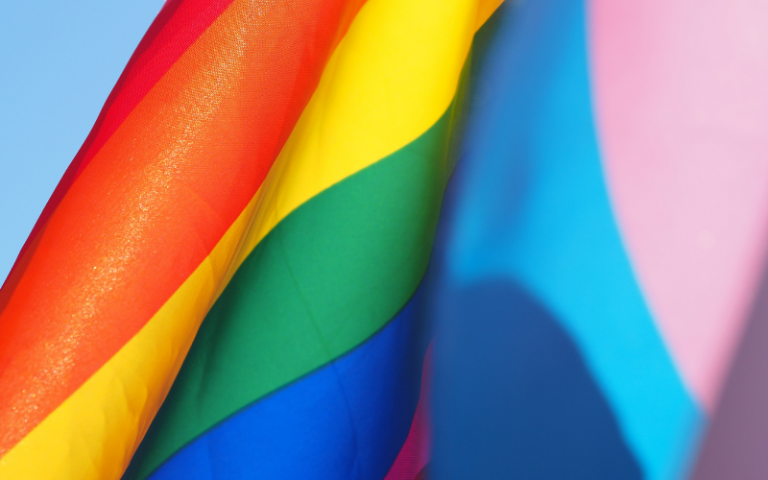The long way to queer liberation
17 May 2021
Today is International Day Against Homophobia, Transphobia and Biphobia, which is a day to recognise the violence perpetrated against the LGBTQ+ community across the world. UCL student Flynn Klein writes about the path to queer liberation.

In 2018 I went to my second-ever Pride with a large group of friends. We prepared by painting custom t-shirts the week before, excitedly discussing the celebrations before us. On the day, I arrived at the train station wearing a thick, black hoodie. It was the middle of July.
I am not particularly fond of the heat and the crowded bus I took to get there did not ease my discomfort. Frankly put, I was scared. I had never been shy in celebrating my queer identity. I had never experienced any homophobic sentiment directed towards me. My friends were all either queer themselves or the most supportive people I could have wished for. But something about putting myself in a space with strangers, wearing a shirt I had lovingly adorned with rainbows, felt like I was putting a target on my back.
Being part of any minority can make a person hypersensitive to hostile behaviour that might put them at risk. I didn’t need anyone to attack me, or sling slurs at me. It was enough to know that they had the power to do so. It was enough to hear the off-handed comments at school – aimed at no one in particular, and yet cutting deep.
“If my brother tells me he wants to be a girl, I’ll beat him up.”
Even the simplest “that’s so gay” put me on edge.
Navigating cis-heteronormative spaces as a visibly queer person means I weigh up personal comfort against safety every time I step into public. It is painful to know that just being given that choice makes me incredibly lucky and privileged within my community. I am privileged to be able to pass as male. I am privileged to be able to pass as white. It doesn’t matter that I’m neither male nor white. What matters is that I am able to walk down the street at night in relative safety. Many more people are not awarded that shield, albeit a false one.
Scholars and academics have written volumes upon volumes on the philosophy of freedom and liberty. Let me ask a question myself: What good does it do to the young queer kid who sees only misery in their future? What good does it do to the trans sex workers who put their lives at risk to secure their humble livelihood? Asking for my pronouns will accomplish nothing but my alienation if I am treated adversely because of them.
Society has begun to understand that actions speak louder than words. At the beginning of the month, the UK reduced the cost of receiving a gender recognition certificate from £140 to £5. There is a lot to be said about the concept of gender recognition certificates, but it’s a big step in the right direction. Action works both ways, though. This year alone, Republican lawmakers in the USA have proposed more than ten pieces of anti-trans legislature. They would prevent trans (youth) from accessing life-saving support, participate in sports activities, or use the bathroom. Some legislature would make blood and genital examinations legally permissible if an athlete’s biological sex is brought into question.
For International Day Against Homophobia, Transphobia and Biphobia, it takes cis and straight allies to recognise the continued violence perpetrated against the LGBTQ+ community. It is not a day to sit back and take pride in the bare minimum. Until queer people stop getting murdered across the world, queer liberation is but a distant dream.
 Close
Close

